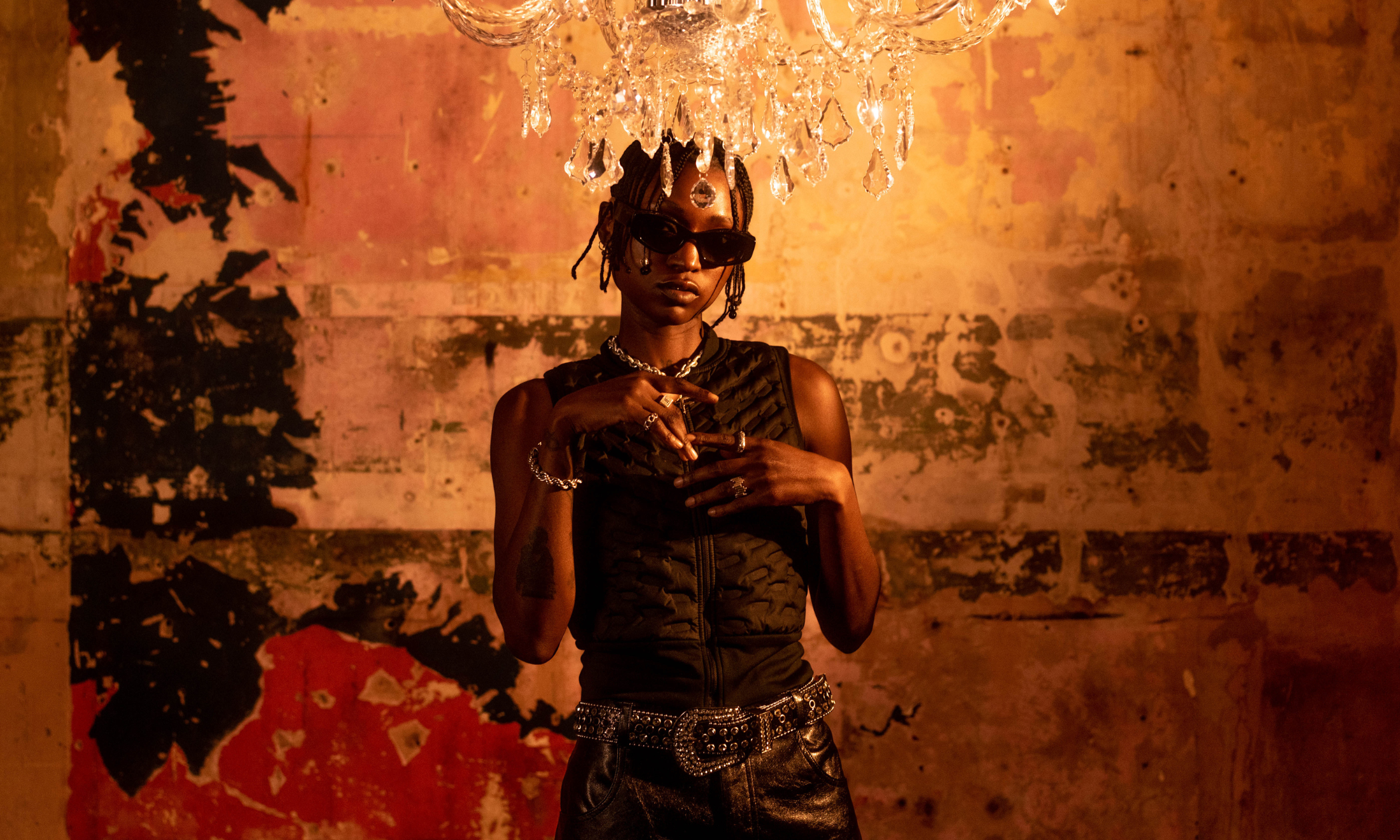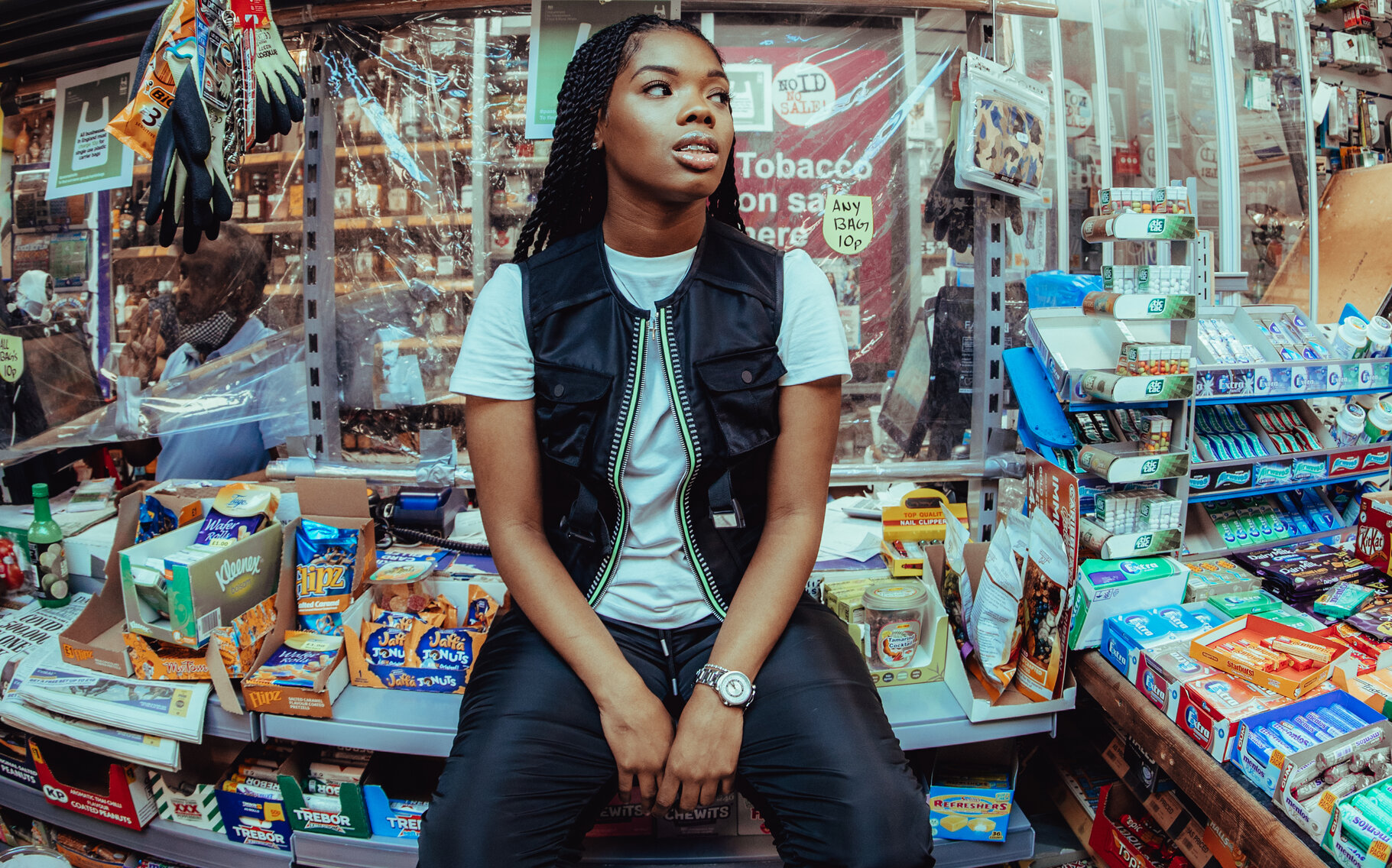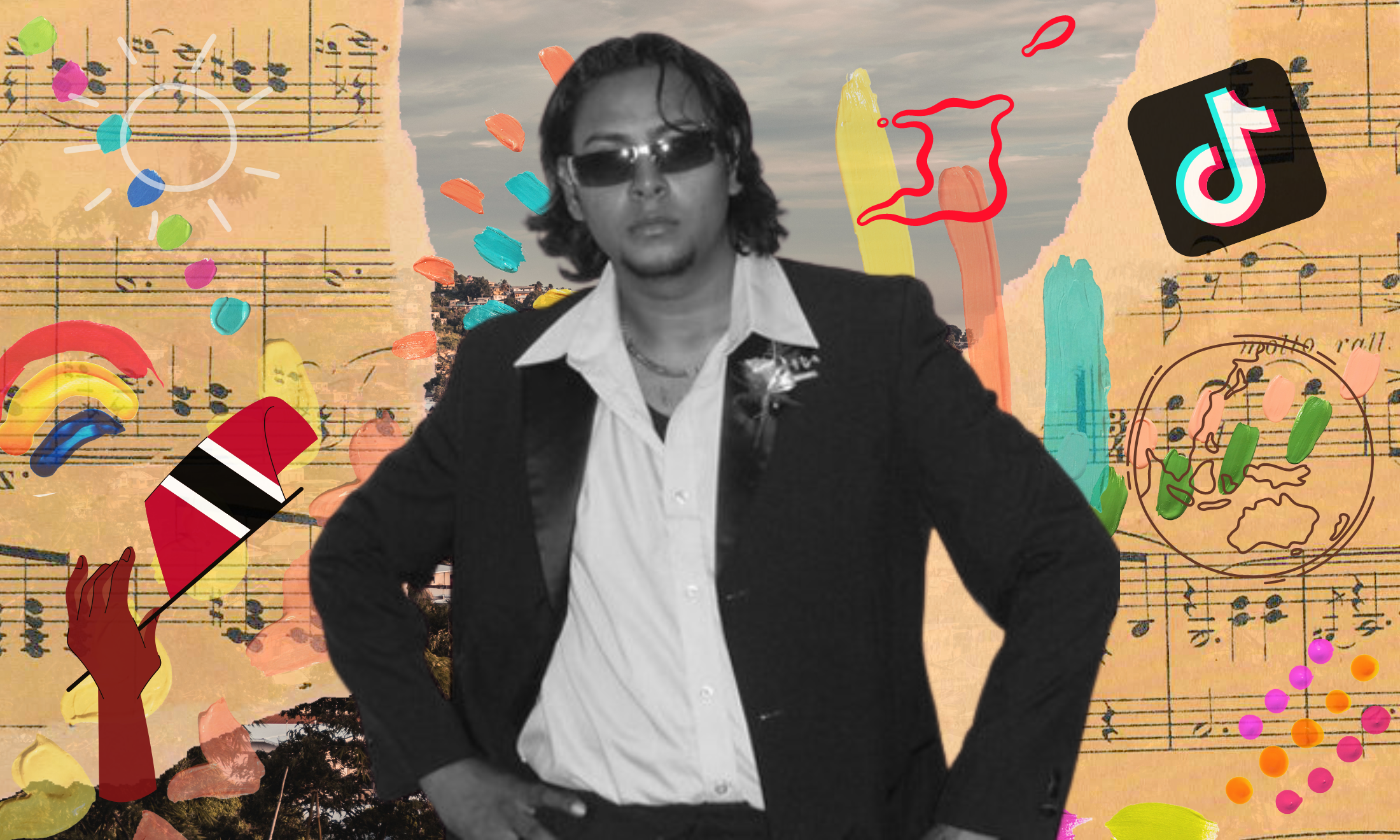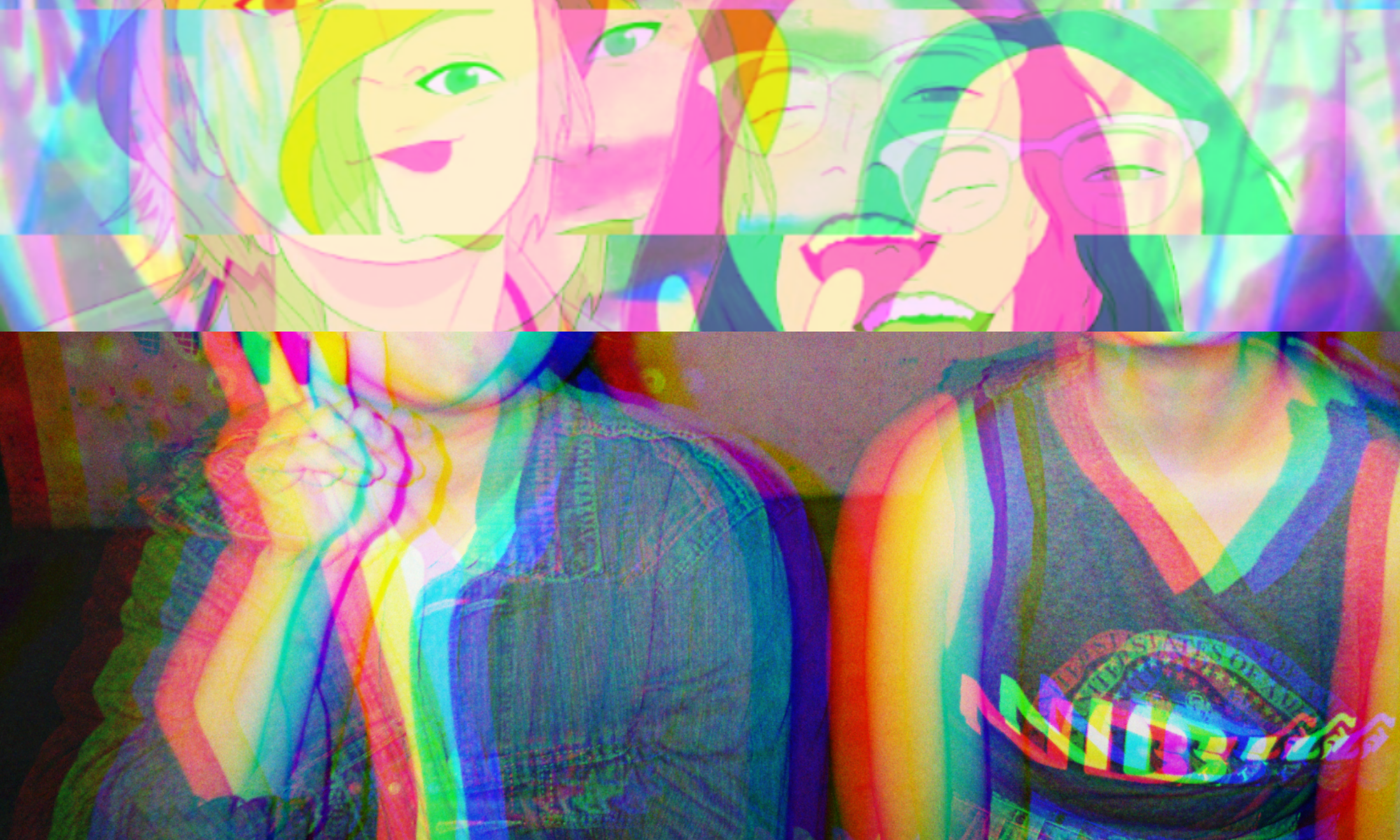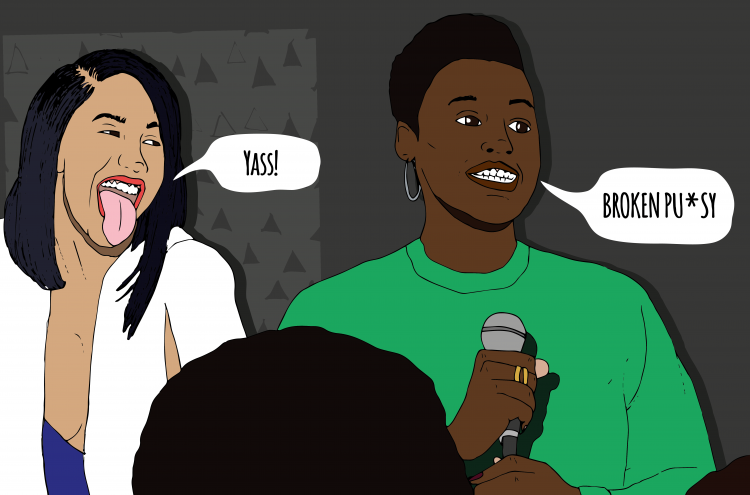
The branding of protagonist Issa as awkward in Insecure is nothing new to Issa Rae. With the inception of her web series Awkward Black Girl, her book The Misadventures of Awkward Black Girl, and now her television series Insecure, Issa Rae diversified what it meant to be a black woman. In many of her interviews and in her book, she talks about not fitting into a particular image of being black – i.e. extroverted and outspoken. Through her creative work, she offers space for shy and awkward black women to explore their black identity and be multilayered.
In the pilot episode of Insecure, viewers watch the protagonist Issa begrudgingly agree to go up on stage and rap. She makes her way through the dimly lit bar with wide eyes. At first, she bops along to the beat hesitantly, quietly reciting into the mic. But as she gets more and more comfortable, she begins to relax, using her arms to accent her bars. Her voice and tone get louder and more confident. She isn’t just fumbling her way through it – she’s actually good. And the crowd is equally as receptive, reciting her chorus back to her.
Through rapping, Issa manages to overcome her shyness and reclaim space that she previously didn’t believe she had access to. This isn’t just a one-time deal in the show. As the first season progresses, Daniel outs Issa as a rapper to the classroom that she works with. Although the class, made up primarily of racialised at-risk youth, previously made fun of her, they become increasingly interested in her as they find evidence of her rap ‘Broken Pussy.’
As Naomi Grant discusses in her article, hip hop has a rich tapestry of influential black women. She highlights Cardi B and Nicki Minaj as most recent examples, but also showcases 90s powerhouses such as Lil Kim, Remy Ma, and Missy Elliot as “both beastly and beautiful.” As an extension of black culture, rap in Insecure provides a way for Issa to connect with her racial identity. By using rap, Issa works from a tradition that empowers her to feel strong and outspoken. She could have chosen any form, as there are many creative channels, but rap allows her access in connecting with her identity.
Although I do not identify as a black woman, Insecure’s Issa resonated with me as a woman of colour. As someone of Indo-Caribbean heritage, I often felt shy and awkward growing up. We share many traits with Afro-Caribbean women and are often portrayed in the same light – extroverted and outspoken. The Caribbean music scene is populated with passionate black vocalists like Destra Garcia and Lady Saw, and many girls around me growing up exuded these same qualities. It was easy to feel like I was on the outside.
Issa made me feel like art could be a way to get closer to my cultural background. Searching through a few links on the web, I landed on some soca and dancehall classes at a local studio in Toronto.
“For the first five minutes of class, I am Issa at that open mic: bopping along to the beat hesitantly and gazing nervously at myself in the mirror.”
For the first five minutes of class, I am Issa at that open mic: bopping along to the beat hesitantly and gazing nervously at myself in the mirror. But minutes into picking up that choreography, I relax, step confidently to every move, and nail every body roll.
In Insecure, Issa doesn’t just wake up one day and decide she is going to rap. She ends up on that stage because she has a long-lasting relationship with music, one that began when she was in high school. I’ve never been a vocalist or musician, but I do have a strong connection with music through dance. From ages ten to 19, every Saturday was dedicated to learning Bollywood and Kathak dance styles. Dance gave me insight into my multi-layered West Indian heritage and a community of like-minded women.
Coming back to dance has made me feel empowered and connected more than ever, in spite of my shyness. Music allows me to connect with my identity on a different level. Every soca melody or dancehall beat is a reminder of where my family comes from, and brings up memories of family functions, house parties, and fetes.
Issa illustrates for women of colour that their identities are multilayered. You can be introverted and shy, and still connect with a racial or cultural identity that is outspoken or extroverted. She never denies the awkward part of herself, but she never lets it stop her from doing what she loves.


